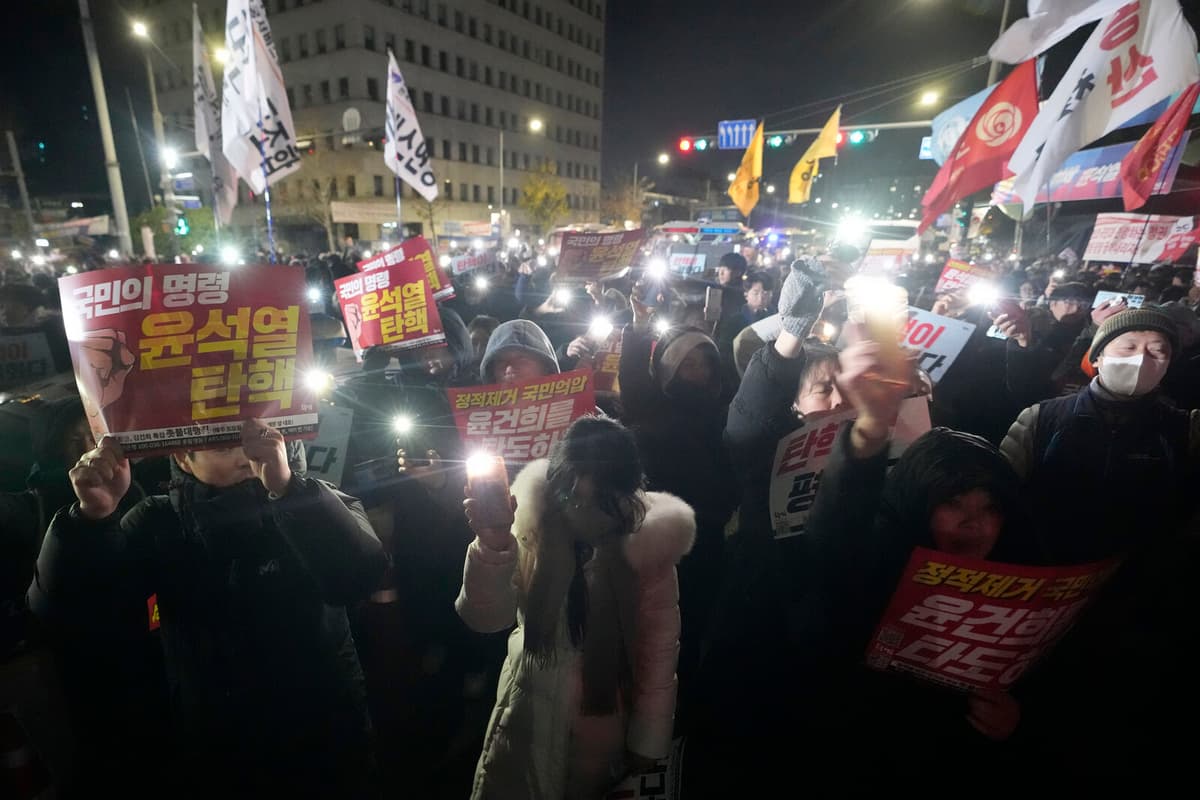On Tuesday, South Korea's President Yoon Suk-Yeol announced that he was introducing martial law or a special state of emergency to protect the country from "communist forces". Only a few hours after the heavily criticized announcement, he is now lifting the state of emergency.
We will immediately accept the National Assembly's demands ... to repeal the martial law, he says.
However, he urges the National Assembly to immediately "stop paralyzing the country's activities with repeated impeachment processes, legislative conflicts, and budget conflicts".
The Opposition in Crisis Meeting
The liberal opposition party, the Democratic Party (DP), called its parliamentarians to a crisis meeting directly after Yoon's announcement earlier in the evening. At the opposition's request, hundreds of demonstrators gathered at the parliament.
The parliament voted in the evening to repeal the martial law. According to South Korean law, the state of emergency can be lifted with a majority vote in parliament, where the opposition party Democratic Party has a majority.
The leader of Yoon Suk-Yeol's conservative People Power Party (PPP), Han Dong-Hoon, urges South Korea's president to thoroughly explain his "tragic" decision to introduce martial law, and says that the party sympathizes with the public.
"The Defense Minister, who recommended the state of emergency, should be immediately dismissed, and all responsible parties must be held strictly accountable", he says in a statement according to CNN.
The President as Commander-in-Chief
Under the state of emergency, all political activities are prohibited, including activities in the National Assembly. On Tuesday, the parliament in Seoul was blocked by police, and according to TV footage from the scene, helicopters landed on the roof.
The President of South Korea is both the head of state and head of government, as well as the commander-in-chief. Since Yoon took office in 2022, he has had difficulty getting his policies through. He has also dodged independent investigations into corruption allegations involving his wife and high-ranking officials.
The last time a state of emergency was declared in South Korea was in 1979, following the assassination of the then-dictator Park Chung Hee.






